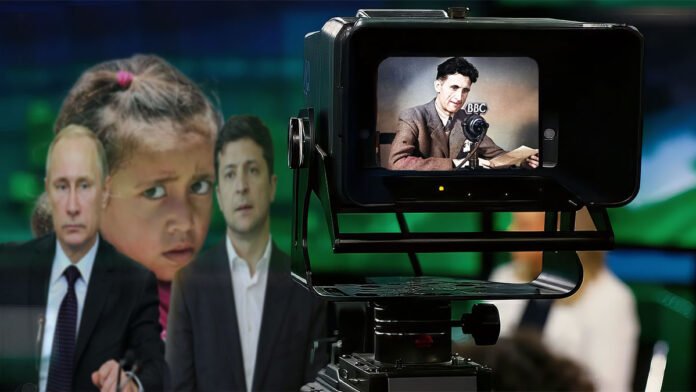The Hypocrisy of War: A Tale of Two Conflicts
In the grand theatre of global conflict, we find ourselves witnessing a masterclass in double standards and selective outrage. The contrast between Western responses to the Israeli-Palestinian conflict and the Russia-Ukraine war lays bare the rank hypocrisy at the heart of our foreign policy and media coverage.
As George Orwell presciently wrote, “Who controls the past controls the future. Who controls the present controls the past.” By controlling the narrative, by deciding where the story begins, our media and political leaders shape our understanding of these conflicts and, by extension, our acceptance of the actions taken in our name.
We witness the contortions of Western leaders attempting to justify their unwavering support for Israel’s brutal assault on Gaza, while simultaneously feigning outrage at Russia’s actions in Ukraine.
Nothing shows this more than this week’s selective outrage. It provides a stark example. Western and UN leaders vehemently condemned Russian missile strikes that reportedly killed at least 38 people in Ukraine. US President Joe Biden called it a “horrific reminder of Russia’s brutality”, vowing to strengthen Kyiv’s air defences. While the UK’s new Prime Minister, Sir Keir Starmer, declared: “Attacking innocent children. The most depraved of actions”. He confirmed the UK will fund the Ukraine war to the tune of £3bn annually “for as long as it takes”.
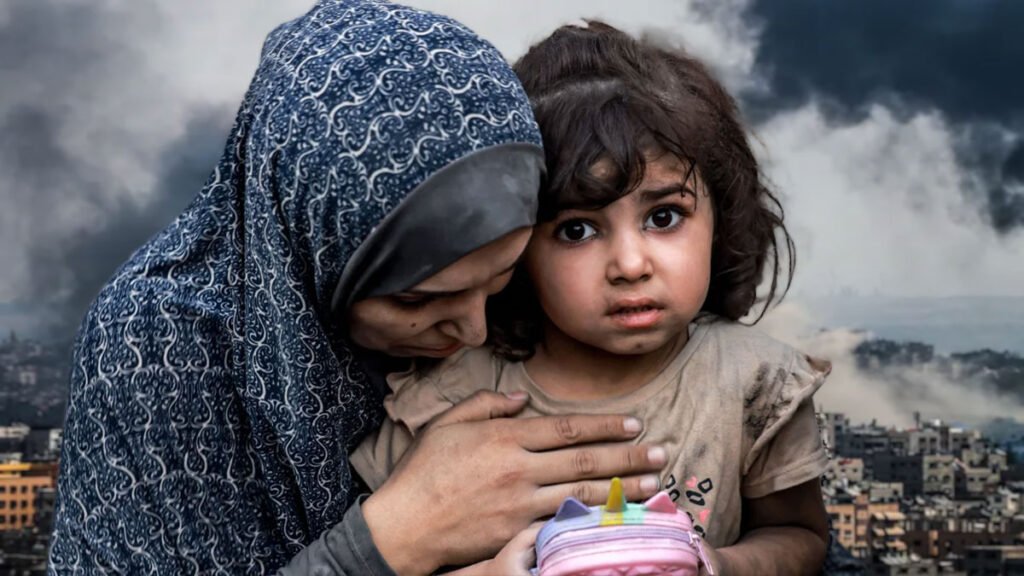
Yet where was this outrage when Israeli forces bombed Al-Shifa hospital in Gaza? Where are the promises of defence for Palestinians? The grim reality is that the lives of Palestinians, like those of so many others outside the invisible empire of the United States, count for little in the grand geopolitical chess game.
It’s a game where the death toll has no consequence other than how they can control the narrative. In Gaza, it now stands at a staggering 38,153, according to the Palestinian health ministry. However, a letter published in the Lancet suggests the final figure could eventually be about 186,000. Yet our political masters, ever eager to prostrate themselves before the altar of American hegemony, maintain their craven silence. But more so the press stays silent.
As Aldous Huxley astutely observed, “The propagandist’s purpose is to make one set of people forget that certain other sets of people are human.” This seems to be the modus operandi of Western politicians and our media, which have become mouthpieces for disinformation and propaganda, giving cover to war and destruction as long as it suits the profits of corporate interests.
The Art of War Propaganda: Crafting Consensus in the Digital Age
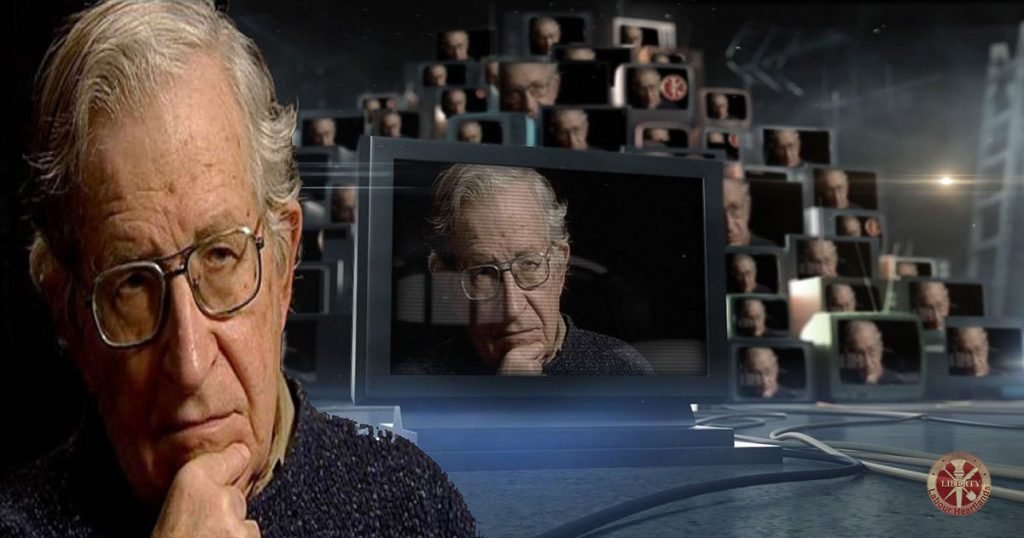
In our hyper-connected world, selling consensus for war has become a disturbingly refined art. The narratives crafted to justify conflict are tailored to exploit political divides, creating entrenched positions that resist facts and reason. This polarisation, amplified by traditional and social media, reduces complex geopolitical realities to simplistic, Manichean narratives.
With the Russia-Ukraine conflict, the West’s narrative is a rehash of Cold War tropes: Putin as the embodiment of evil, Zelensky as the paragon of democratic virtue. This framing, deeply rooted in Western collective consciousness, conjures images of Soviet bogeymen that haven’t existed for over three decades.
It conveniently ignores Ukraine’s complex recent history, including its status as one of Europe’s most corrupt nations prior to the Russian intervention, this war washed away all past sins.
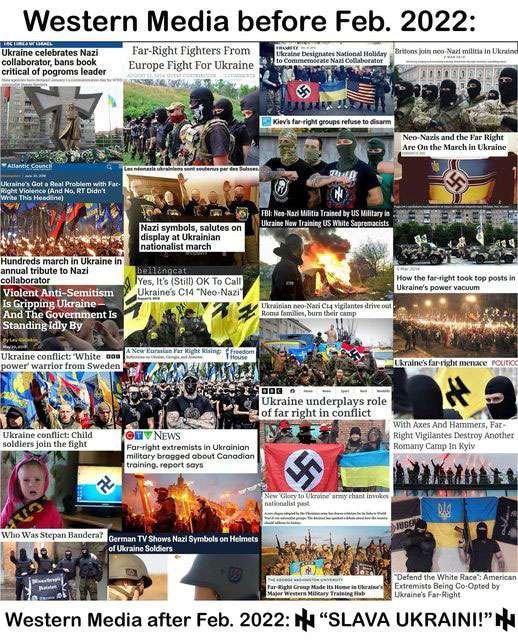
The rise of far-right elements in Ukraine, once a cause for concern in Western media, has been quietly swept under the rug. As Noam Chomsky pointed out, “The smart way to keep people passive and obedient is to strictly limit the spectrum of acceptable opinion, but allow very lively debate within that spectrum.”
The power of these narratives lies in their ability to confer a veneer of political legitimacy to actions that would otherwise be considered unconscionable. Russia’s intervention in Ukraine in February 2022 was swiftly branded an “invasion” by Western powers, ignoring the nuanced reality of a region that had been embroiled in civil war since the Western-backed coup of 2014. The Minsk agreements, the plight of ethnic Russians in the Donbas, and the complex tapestry of Ukrainian politics are all but forgotten in this simplified narrative.
The Art of War Propaganda: Western Narratives in Gaza
The Palestinian struggle faces a different, but equally pernicious, narrative manipulation. The portrayal of Palestinians as “a people without a land” serves as a smokescreen for Israel’s territorial ambitions, including the lucrative gas fields off Gaza’s coast. This framing conveniently ignores the complex history of the region and the legitimate rights of Palestinians.
It erases 75 years of Israeli occupation, land grabs, and systematic oppression, reducing the conflict to a series of isolated incidents divorced from their historical context.
Similarly, mainstream media’s coverage of the Israel-Gaza conflict is riddled with selective reporting. The obligatory mention of the “October 7 Hamas attack” in every article serves to frame all subsequent Israeli actions as justified retaliation. Yet, retractions of initial sensationalist claims receive minimal coverage.
Gone down the memory hole are 75 years of Israeli crimes carried out on an oppressed people. The Nakba, the continuous expansion of settlements, the Gaza blockade – all these crucial pieces of context are omitted, presenting a distorted picture of the conflict.
The carnage in Gaza is not collateral damage in a just war; it is the deliberate outcome of a policy designed to break the will of an entire people. The displacement of 90% of Gaza’s population and the “catastrophic” hunger faced by half a million people are not unfortunate side effects but the very objectives of this conflict.
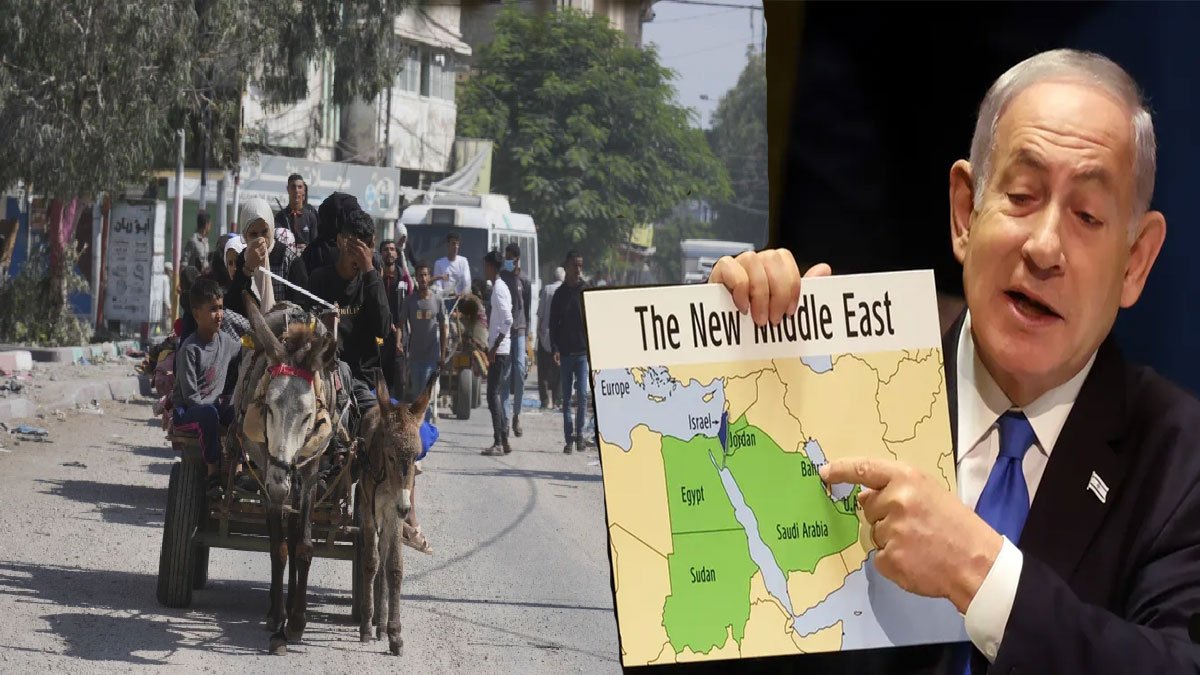
Drawing from George Orwell, “Who controls the past controls the future. Who controls the present controls the past.” By controlling the narrative, by deciding where the story begins, our media and political leaders shape our understanding of these conflicts and, by extension, our acceptance of the actions taken in our name.
We should also ask: who is advocating for peace? Who is working to resolve these conflicts rather than fuel them? The deafening silence in response to these questions is perhaps the most damning indictment of our current geopolitical paradigm.
Of course, you might argue that hoping for an end to these conflicts is naive. There’s too much money to be made in war, too many resources to be plundered. Billions in contracts for those who destroy, and billions more for those who rebuild. As Major General Smedley Butler once said, “War is a racket. It always has been… A few profit – and the many pay.”
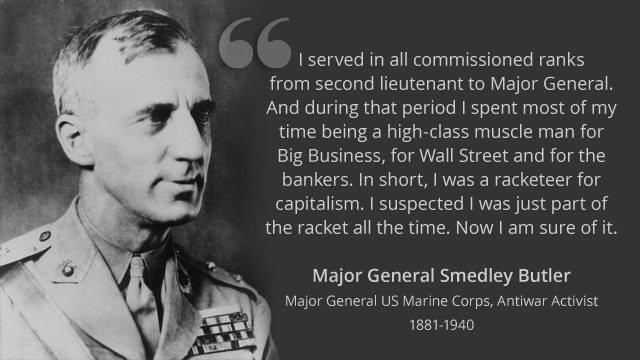
But we must not succumb entirely to cynicism, tempting as it may be. The machinery of war and propaganda often seems insurmountable, a Goliath against which we feel powerless. Yet history has shown that even the mightiest empires can fall, that public opinion can shift, and that grassroots movements can effect change.
Perhaps we should view our task through the lens of Albert Camus, who wrote: “The struggle itself toward the heights is enough to fill a man’s heart. One must imagine Sisyphus happy.” Our role, then, is not to expect immediate victory, but to persistently push back against the tide of misinformation and warmongering.
This means challenging narratives, demanding accountability, and working tirelessly for peace, not because we’re guaranteed success, but because the alternative – silent complicity – is unthinkable. As Noam Chomsky reminds us, “Optimism is a strategy for making a better future. Because unless you believe that the future can be better, you are unlikely to step up and take responsibility for making it so.”
In this light, every act of resistance, every voice raised in dissent, every mind changed becomes a small victory. It may not end wars overnight, but it keeps alive the possibility of a more just world. And in these dark times, that possibility, however slim, is worth fighting for.
Support Independent Journalism Today
Our unwavering dedication is to provide you with unbiased news, diverse perspectives, and insightful opinions. We're on a mission to ensure that those in positions of power are held accountable for their actions, but we can't do it alone. Labour Heartlands is primarily funded by me, Paul Knaggs, and by the generous contributions of readers like you. Your donations keep us going and help us uphold the principles of independent journalism. Join us in our quest for truth, transparency, and accountability – donate today and be a part of our mission!
Like everyone else, we're facing challenges, and we need your help to stay online and continue providing crucial journalism. Every contribution, no matter how small, goes a long way in helping us thrive. By becoming one of our donors, you become a vital part of our mission to uncover the truth and uphold the values of democracy.
While we maintain our independence from political affiliations, we stand united against corruption, injustice, and the erosion of free speech, truth, and democracy. We believe in the power of accurate information in a democracy, and we consider facts non-negotiable.
Your support, no matter the amount, can make a significant impact. Together, we can make a difference and continue our journey toward a more informed and just society.
Thank you for supporting Labour Heartlands
